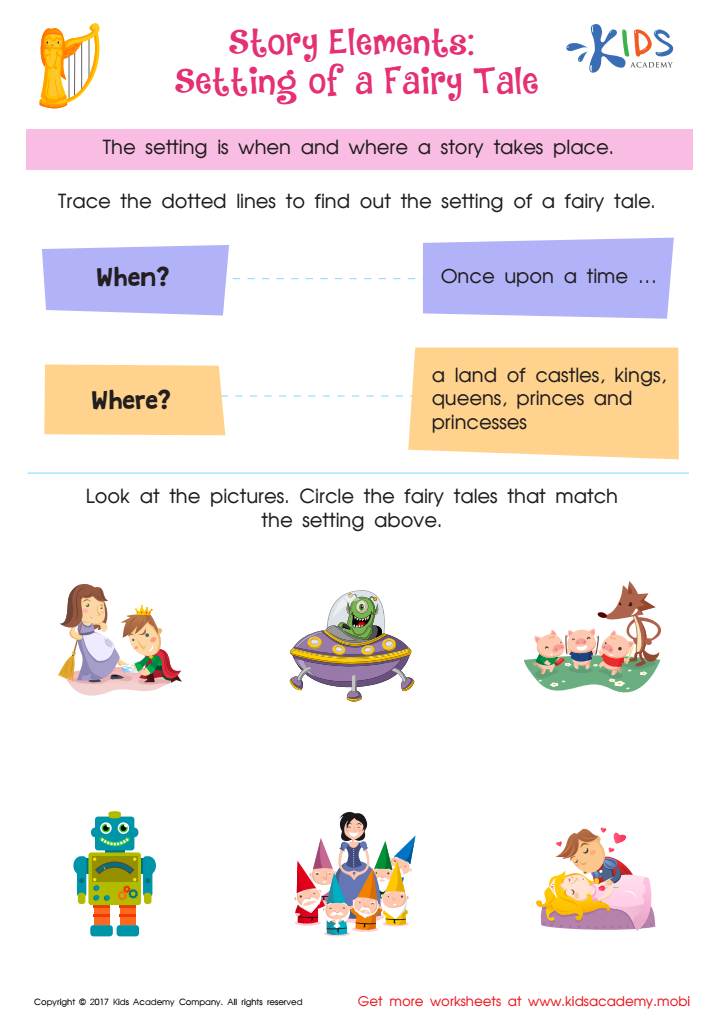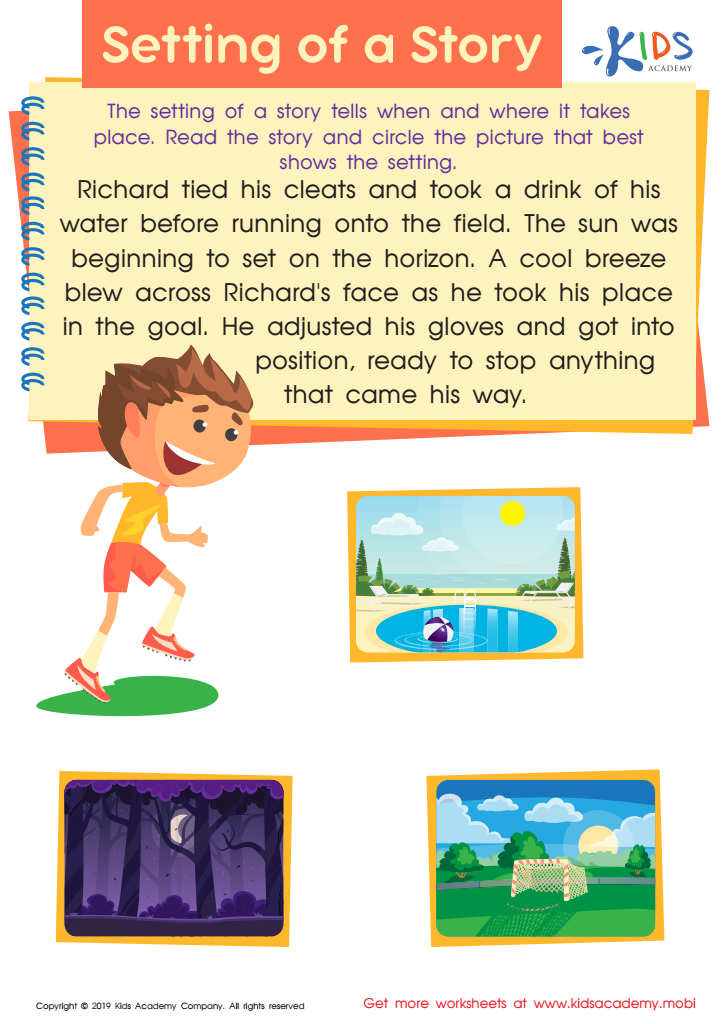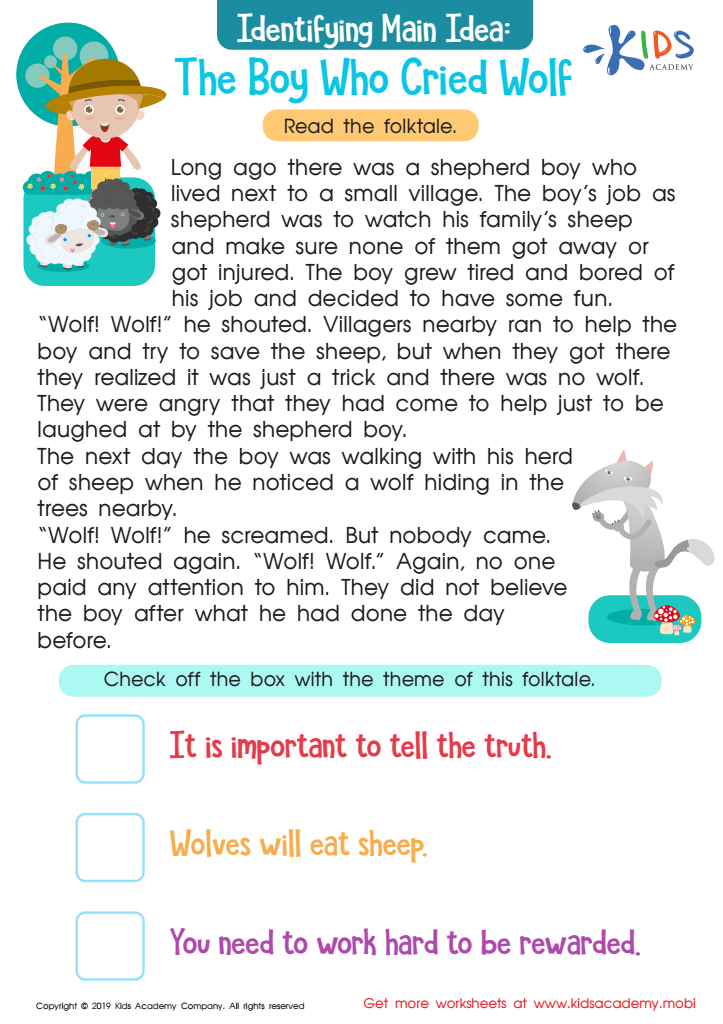Critical thinking skills Reading Fiction Worksheets for Ages 6-9
3 filtered results
-
From - To
Unlock the world of imagination and reasoning with our Critical Thinking Skills Reading Fiction Worksheets for ages 6-9! Designed to enhance comprehension, these engaging worksheets challenge young readers to analyze characters, plot, and themes while fostering essential critical thinking skills. Each activity encourages children to think deeply about the stories they read, promoting creativity and problem-solving. Our resources are perfect for classrooms or at-home learning, tailored to fit diverse learning styles. Empower your child’s reading journey and help them cultivate a love for literature as they explore fiction in a fun and enriching way! Perfect for both teachers and parents.


Story Elements: Setting of a Fairy Tale Printable


Setting of a Story Worksheet


The Boy Who Cried Wolf Part 2 Worksheet
Parents and teachers should prioritize critical thinking skills in reading fiction for children aged 6-9 because these skills are fundamental for cognitive development and overall academic success. During these formative years, children are learning to comprehend and analyze narratives, which helps them make connections between their experiences and the worlds created by authors. Engaging with fiction enhances their ability to ask questions, draw inferences, and evaluate characters' motivations and plot developments.
Reading fiction also promotes empathy, as children explore diverse perspectives and emotions through stories. This empathetic understanding is crucial for social interactions and allows children to navigate complex social dynamics later in life. Moreover, encouraging critical thinking helps children become independent thinkers who can assess information critically—a skill highly important in the information-rich age we live in.
By fostering these skills, parents and teachers equip children with the tools to approach problems analytically, enabling them to think creatively and make informed decisions. Therefore, emphasizing critical thinking in fiction not only enriches their reading experience but also lays a solid foundation for lifelong learning and responsible citizenship.
 Assign to My Students
Assign to My Students


.jpg)












